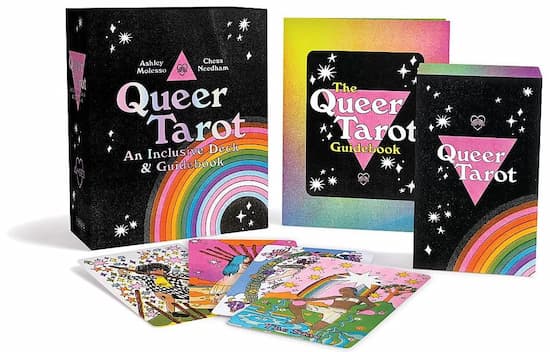Have you ever wondered why it feels almost natural to gauge your life against someone else's? It's not just you; comparing is a common human tendency. There are psychological roots of this behavior, touching on concepts like social comparison theory.
Here's a little insight: social psychologists believe the habit stems from our desire to understand ourselves and our place in the social world. Put simply, we evaluate our abilities by comparing them with others. We also evaluate our opinions by comparing them with others, too. And that comparison often fuels personal growth because seeing someone else's success can light a fire under us to aspire for more. Agree?
Now, comparison can also be detrimental to our self-image and satisfaction with life. Take a moment and think about a time when comparison made you feel inadequate; it's a universal experience that can really dampen the spirit.
You know the typical comparison game: social media.
The Impact of Social Media on Self-Comparison
So we all know that social media is a breeding ground for comparing our lives to others, right? Each network has a giant lens of idealized lives and curated perfection. You're bombarded with images and stories that scream success, happiness, and a life free of the struggles you are actually facing.
The endless stream of highlight reels from friends and celebrities creates an unrealistic benchmark for personal success and lifestyle. This leads to some serious impacts on self-esteem and mental health.
They say, adjust your approach to how you interact with users. They say, nurture a healthier consumption habit, such as limiting time spent online to view content that makes you feel good about yourself, rather than inferior. They say, if you know the mechanisms behind social media's comparison culture, you can pave the way for a healthier relationship.
…Not that easy. Not for the majority of social users. Because cultural and societal contexts shape the way we compare ourselves to others, and that is the whole point of social media.
Cultural and Societal Influences on Comparison
But hang on a minute. When you look at history, we’ve always compared ourselves to others. Nothing’s new. Iit has deep roots, shaped by the societies we live in. From the castes of ancient civilizations to the class structures of modern times, societies inherently create frameworks for comparison.
Did You Know?
- Social Comparison Theory (Festinger, 1954): Suggests humans have an innate drive to evaluate themselves by comparing to others.
- Upward vs. Downward Comparisons: Upward comparisons are made with those perceived to be better off, downward with those worse off.
- Impact on Self-Esteem: Regularly comparing oneself negatively to others can lower self-esteem and increase anxiety.
- Influence of Social Media: 60% of social media users report feeling inadequate about their own lives or achievements after browsing.
- Happiness Correlation: A study found that people who compare themselves to others are likely to experience envy, which decreases happiness.
- Age Factors: Young adults (18-29) are most likely to compare themselves to their peers, especially in terms of career progress.
Our cultural norms steer the direction of our comparisons. In some cultures, the emphasis might be on collective success and community achievement, while in others, accomplishments are the gold standard. The size of your house, the brand of your car, or the prestige of your job, cultural narratives… All dictate what's worthy of comparison.
Now, capitalism and competitiveness. In many economies, the underlying message is clear: to be successful is to be better than others. Your net worth becomes a scoreboard, and that can intensify the need to compare.
There's pressure everywhere you turn to match up to societal benchmarks, for example;
- Advertisements tell you what you should look like.
- Reality TV shows highlight how you should live.
- Education systems rank students based on grades.
The implication is that to be accepted, you need to conform to these ideals. And that's not just about fitting in - often, it's about measuring up.
These cultural narratives pave the way for the personal consequences that we face when we're caught up in chronic comparison. So, if you find yourself constantly measuring your worth against others, remember, it's not entirely on you. Society's playbook can be pretty persuasive.
Personal Consequences of Chronic Comparison
So you know that it's all exhausting and it's potentially damaging. When comparison goes from occasional to habitual, it'll have huge effects on your mind and your relationships with others, hence the whole lifestyle of yours.
You don't want that kind of chronic dissatisfaction, do you? Always looking over your shoulder can rob you of joy in the present because you're stuck in the 'what could be' rather than being proud of 'what is'.
If you are one of those 'jealous' people, you feel down when you see someone else being more successful than you, don't you? And this can spiral into a cycle of negativity affecting your self-esteem and mental health. When you measure your worth by someone else's yardstick, you're at risk of neglecting your own creativity.
Excessive comparison can sour relationships too. It's like an unwelcome third party that whispers doubts and fosters jealousy. Instead of celebrating the achievements of friends and family, there's a risk you'll view their successes as reminders of your own perceived shortcomings.
I'm here to help you with this not to make you feel guilty, but to spotlight a path to better mental well-being. If you want to quash the comparison habit, you'd better appreciate your uniqueness and the milestones you've reached, no matter how they stack up against others'.
Shift the focus from others to yourself; not in a narcissistic way, but with a healthy self-interest. You're not going to stop comparison entirely - that's almost impossible. But you can always replace envy with inspiration, and compete with curiosity about your own potential. That's the strategy I like to leverage.
Overcoming the Comparison Trap
So to summarize...
- We always compare. It's a human thing. We just have to not let it rule our lives. Break free, redirect your focus to what matters. Choose something valuable to you, something deeply personal, and stick to that.
- Build self-compassion. It means talking to yourself kindly. You are doing great, as everyone is. There's no race with a finish line.
- Your individuality is your own. When you know your exact quirks, comparison loses its grip. Think about grabbing a journal and taking time each day to acknowledge things you're proud of—big or small—helping to shift your mindset toward appreciating your unique self.
- Don't worry too much about occasional comparing. Only when you think you're stressed out, reach out for support - anybody around you.
- Bottom line: Everybody’s story is different, and your book has chapters that no one else could possibly write.
That's me done for today. I really hope that you find these insights and strategies helpful. Keep in mind that change doesn't happen overnight. Your first attempt doesn't need to be your last. You can always adjust your approach down the road. I'm here to help you be proud of your own story, so let's keep the conversation going.
Share your experiences, your struggles, and your victories with me!






I'm very intrigued by your article. It says all about the insecurities that people have, and I agree that I compare myself to others all the time. The solutions that you suggested are second to none. Well done.
Thank you for your comment, but why did you think the solutions are “second to none”? If you could please share your opinion more with us, we appreciate it.